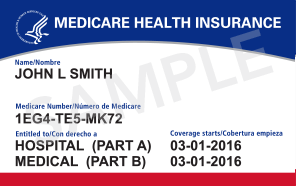NY Times- By THOMAS KAPLAN and ROBERT PEAR MAY 4, 2017
WASHINGTON — The House on Thursday narrowly approved legislation to repeal and replace major parts of the Affordable Care Act, as Republicans recovered from their earlier failures and moved a step closer to delivering on their promise to reshape American health care without mandated insurance coverage.
The vote, 217 to 213, held on President Trump’s 105th day in office, is a significant step on what could be a long legislative road. Twenty Republicans bolted from their leadership to vote no. But the win keeps alive the party’s dream of unwinding President Barack Obama’s signature domestic achievement.
The House measure faces profound uncertainty in the Senate, where a handful of Republican senators immediately rejected it, signaling that they would start work on a new version of the bill virtually from scratch.
“To the extent that the House solves problems, we might borrow ideas,” said Senator Lamar Alexander of Tennessee, chairman of the Senate health committee. “We can go to conference with the House, or they can pass our bill.”
Even before the vote, some Republican senators had expressed deep reservations about one of the most important provisions of the House bill, which would roll back the expansion of Medicaid under the Affordable Care Act.
With $8 Billion Deal on Health Bill, House G.O.P. Leader Says ‘We Have Enough Votes’ MAY 3, 2017
But a softening of the House bill, which could help it get through the Senate, would present new problems. For any repeal measure to become law, the House and the Senate would have to agree on the language, a formidable challenge.
The House voted on Thursday on a revised health care bill that would repeal and replace major parts of the Affordable Care Act.
Just before the House vote, the Senate gave final approval on Thursday to a $1.1 trillion spending bill that will finance the government through September, and unlike the health care legislation, the spending bill had broad bipartisan support.
After weeks of negotiations and false starts, Mr. Trump and House Republicans were not about to dwell on the tough road ahead. Passage of the health care bill completed a remarkable act of political resuscitation, six weeks after House leaders failed to muster the votes to pass an earlier version of the measure, a blow to Mr. Trump and Speaker Paul D. Ryan of Wisconsin.
“Yes, premiums will be coming down; yes, deductibles will be coming down, but very importantly, it’s a great plan,” Mr. Trump boasted on Thursday at the kind of White House Rose Garden victory ceremony typically reserved for legislation that is being signed into law, not for a controversial bill that passed just one chamber.
“We want to brag about the plan,” Mr. Trump said, after asking those assembled how he was doing in his debut as a politician. “Hey, I’m president!”
Mr. Trump quickly turned his attention to pressuring the Senate to act, calling the majority leader, Mitch McConnell, Republican of Kentucky, to talk about the way forward for the health plan.
Democrats, who voted unanimously against the bill, vowed to make Republicans pay a political price for pushing such unpopular legislation. As Republicans reached the threshold for passage, Democrats serenaded them with, “Na na na na, na na na na, hey hey hey, goodbye!”
“I have never seen political suicide in my life like I’m seeing today,” Representative Louise M. Slaughter, Democrat of New York, said on the House floor before the vote.
Representative Nancy Pelosi of California, the Democratic leader, warned moderate Republicans who supported the measure: “You have every provision of this bill tattooed on your forehead. You will glow in the dark on this one.”
The House bill would eliminate tax penalties for people who go without health insurance. It would roll back state-by-state expansions of Medicaid, which covered millions of low-income Americans. And in place of government-subsidized insurance policies offered exclusively on the Affordable Care Act’s marketplaces, the bill would offer tax credits of $2,000 to $4,000 a year, depending on age.
A family could receive up to $14,000 a year in credits. The credits would be reduced for individuals making over $75,000 a year and families making over $150,000.
The nonpartisan Congressional Budget Office said the first version of the bill would trim the federal budget deficit considerably but would also leave 24 million more Americans without health insurance after a decade. Average insurance premiums would be 15 percent to 20 percent higher in 2018 and 2019, but after that, they would be lower than projected under current law.
Mr. Alexander of Tennessee, chairman of the Senate health committee, said Thursday that Republicans had been quietly working for several months on their own bill and would take the House measure under consideration for ideas and components.
Senate Republicans will face some of the same dynamics that stymied the House for weeks. Moderate senators will demand significant concessions, which in turn could alienate three hard-liners: Senators Ted Cruz of Texas, Rand Paul of Kentucky and Mike Lee of Utah.
Republican senators are certain to face pressure from governors worried about constituents on Medicaid losing their coverage. Republican leaders changed the House bill to woo hard-line conservatives, allowing state governments to roll back required coverage for essential services like maternity and emergency care. States could also seek waivers that would let insurers charge higher premiums for some people with pre-existing medical conditions.
Will the American Health Care Act Affect You? Share Your Story.
The Times would like to hear from Americans who will be affected by the new plan to repeal and replace major parts of the Affordable Care Act.
“We cannot pull the rug out from under states like Nevada that expanded Medicaid, and we need assurances that people with pre-existing conditions will be protected,” said Senator Dean Heller, Republican of Nevada, who is up for re-election next year.
Senator Bill Cassidy, Republican of Louisiana, said he wanted to ensure that the final repeal bill “fulfills President Trump’s promises to lower premiums, maintain coverage and protect those with pre-existing conditions.”
Democrats are confident that some provisions of the House bill will be found to violate special budget rules that Republicans must follow in order to skirt a Senate filibuster.
“This bill is going nowhere fast in the United States Senate,” the Democratic leader, Chuck Schumer of New York, said. He said his Republican colleagues “should refuse to follow their House colleagues over a cliff, reject repeal, and work with Democrats to improve our health care system in a bipartisan way.”
Republicans have promised for seven years to repeal the Affordable Care Act, under which around 20 million Americans gained health coverage. But they had no consensus on how much of the law should be repealed and had great difficulty devising a comprehensive replacement. Their doubts were reinforced by constituents who said the health law had saved their lives.
Doctors, hospitals and other health care providers joined patient advocacy groups like the American Cancer Society and AARP in opposing the repeal bill.
But House Republicans said that insurance markets in many states were already melting down, and they pointed to Iowa, where the last major insurer under the Affordable Care Act has threatened to pull out.
There may be “nobody to write insurance for people that are in the Obamacare exchanges” in 94 of Iowa’s 99 counties, said the House Republican whip, Steve Scalise of Louisiana.
The House vote on Thursday occurred before the Congressional Budget Office had released a new analysis of the revised bill with its cost and impact. Democrats angrily questioned how Republicans could vote on a bill that would affect millions of people and a large slice of the American economy without knowing the ramifications.
The Republican bill, the American Health Care Act, would make profound changes to Medicaid, the health program for low-income people, ending its status as an open-ended entitlement. States would receive an allotment of federal money for each beneficiary, or, as an alternative, they could take the money in a lump sum as a block grant, with fewer federal requirements. The bill would also repeal taxes imposed by the Affordable Care Act on high-income people, insurers and drug companies, among others. And it would cut off federal funds from Planned Parenthood for one year.
Many defenders of the bill focused less on its details than on what they saw as shortcomings of the Affordable Care Act.
“Obamacare has hijacked the free market and has taken some Americans’ liberties with it,” Representative Doug Collins, Republican of Georgia, said on the floor, adding that the health law “replaced our doctors with bureaucrats, because that’s what socialized medicine does.”
Democrats worked to link House Republicans’ actions to an unpopular president. “The Pied Piper of Trump Tower is playing a tune today, and they must dance,” said Representative Lloyd Doggett, Democrat of Texas.
Representative Jim McGovern, Democrat of Massachusetts, told Republicans: “You are taking away essential health care protections. You are allowing insurance companies to discriminate against people with pre-existing conditions.”
“Death spiral!” the president wrote on Twitter.
Questions about Obamacare and reimbursement? Physician Credentialing and Revalidation ? or other changes in Medicare, Commercial Insurance, and Medicaid billing, credentialing and payments? Call the Firm Services at 512-243-6844



